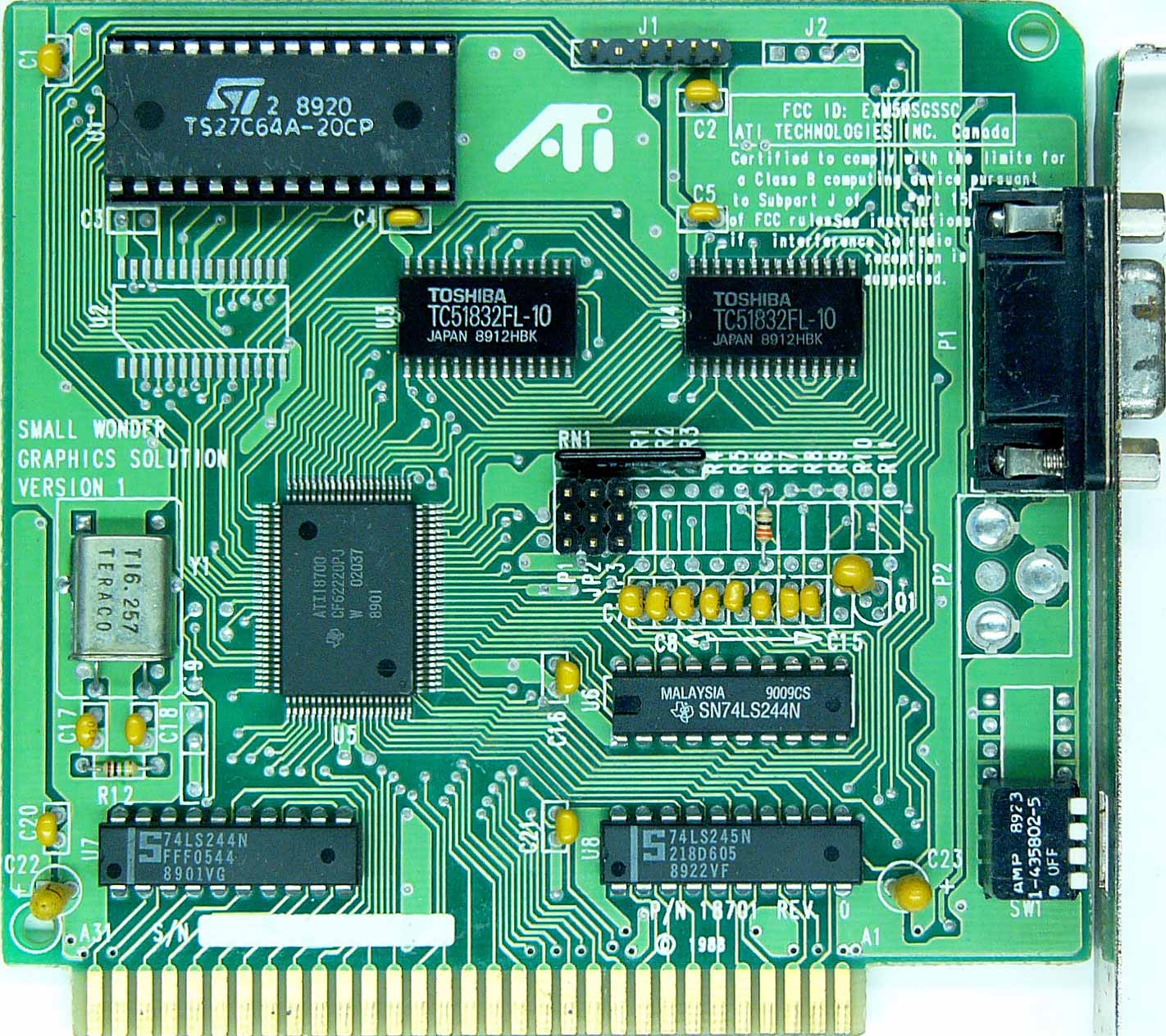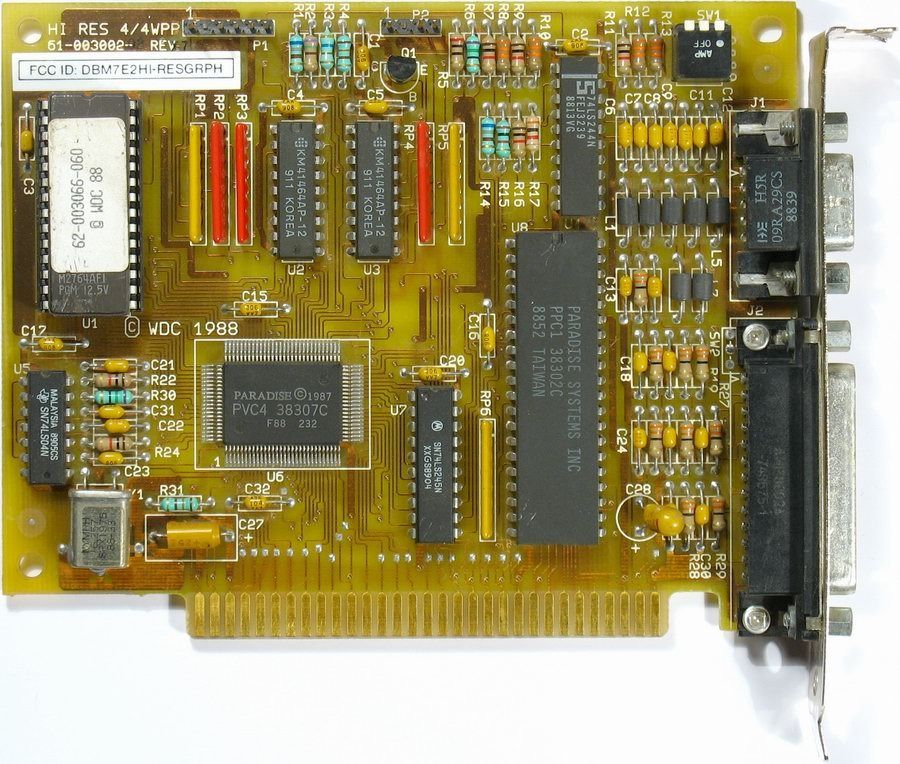First post, by Nvm1
I received a lot of cards and motherboards and between them this card came up:
It is a 8 bit ISA CGA card as far as I can see. I cannot find a single reference to the ACU MoS AVC1 9040 or any other thing written on this thing.
Some more pics:
It has a 9 pin monitor connector, the name "dual display adapter" on the back and 2 pieces of memory (64kb?)
The silkscreen gives options for CGA/MDA/RGB/MONO and internal or external rom although there is no rom on the card itself.
I know ACU MoS from early Cirrus Logic cards but more not.
What is this card?

